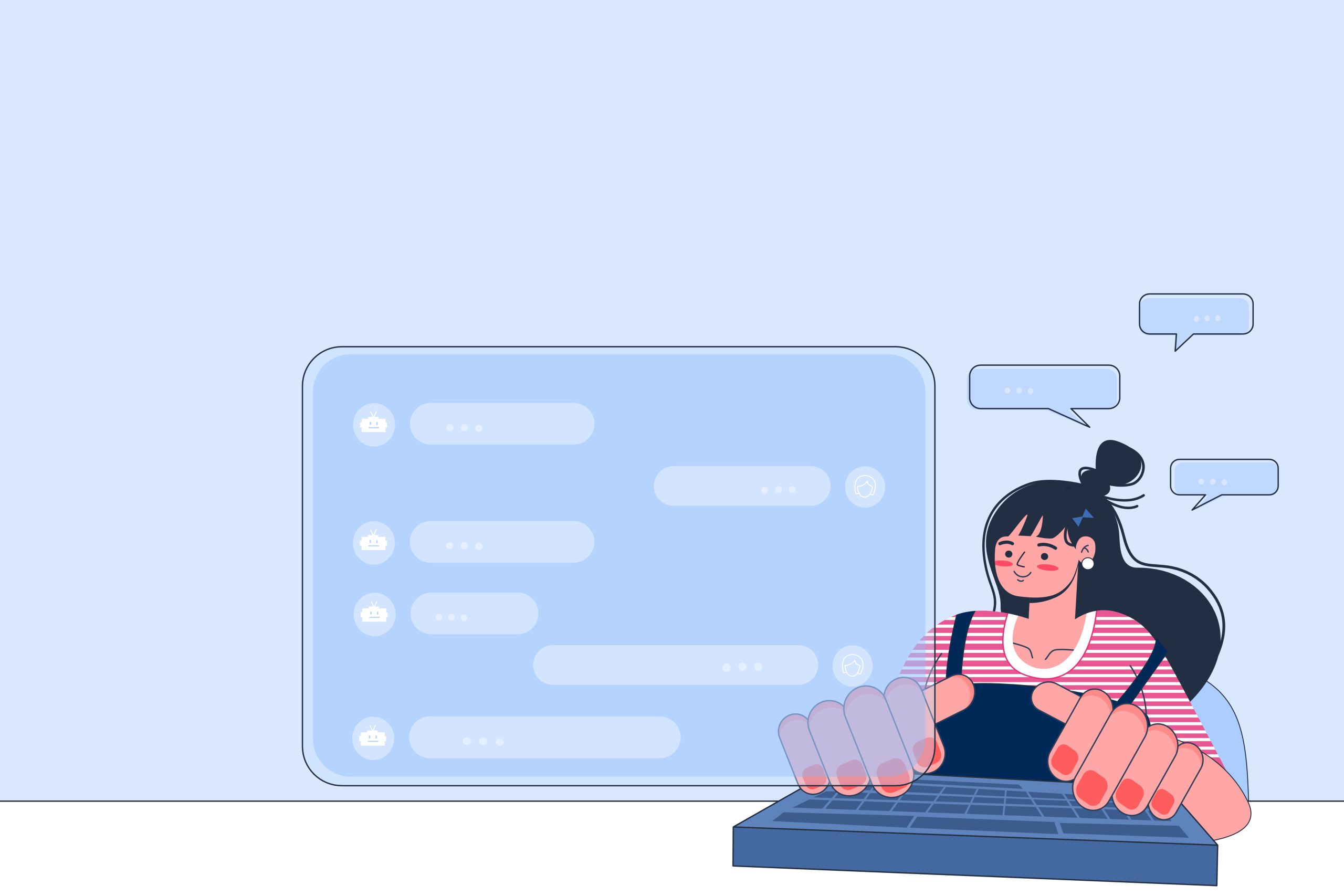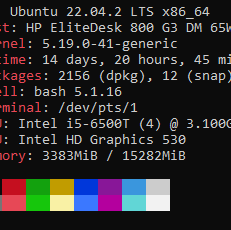Does AI actually help students learn? A recent experiment in a high school provides a cautionary tale.
Researchers at the University of Pennsylvania found that Turkish high school students who had access to ChatGPT while doing practice math problems did worse on a math test compared with students who didn’t have access to ChatGPT. Those with ChatGPT solved 48 percent more of the practice problems correctly, but they ultimately scored 17 percent worse on a test of the topic that the students were learning.
A third group of students had access to a revised version of ChatGPT that functioned more like a tutor. This chatbot was programmed to provide hints without directly divulging the answer. The students who used it did spectacularly better on the practice problems, solving 127 percent more of them correctly compared with students who did their practice work without any high-tech aids. But on a test afterwards, these AI-tutored students did no better. Students who just did their practice problems the old fashioned way — on their own — matched their test scores.
No shit
Unsurprised
I.would have no problem with AI if the shit actually worked
No, I think the point here is that the kids never learned the material, not that AI taught them the wrong material (though there is a high possibility of that).
Yes yet there is indeed a deeper point. If the AI is to be used as a teaching tool it still has to give genuinely useful advice. No good sounding advice that might actually still be wrong. LLMs can feed wrong final answers but they can also make poor suggestions on the process itself too. So there are both problematic, how the tool is used but also its intrinsic limitations.
ChatGPT lies which is kind of an issue in education.
As far as seeing the answer, I learned a significant amount of math by looking at the answer for a type of question and working backwards. That’s not the issue as long as you’re honestly trying to understand the process.
Youdontsay.png

Haven’t seen that in ages. Thanks.
No worries. Somehow I use it quite often nowadays
God I miss ytmnd https://owleyes.ytmnd.com/
Of all the students in the world, they pick ones from a “Turkish high school”. Any clear indication why there of all places when conducted by a US university?
The paper only says it’s a collaboration. It’s pretty large scale, so the opportunity might be rare. There’s a chance that (the same or other) researchers will follow up and experiment in more schools.
The study was done in Turkey, probably because students are for sale and have no rights.
It doesn’t matter though. They could pick any weird, tiny sample and do another meaningless study. It would still get hyped and they would still get funding.
I’m guessing there was a previous connection with some of the study authors.
I skimmed the paper, and I didn’t see it mention language. I’d be more interested to know if they were using ChatGPT in English or Turkish, and how that would affect performance, since I assume the model is trained on significantly more English language data than Turkish.
GPTs are designed with translation in mind, so I could see it being extremely useful in providing me instruction on a topic in a non-English native language.
But they haven’t been around long enough for the novelty factor to wear off.
It’s like computers in the 1980s… people played Oregon Trail on them, but they didn’t really help much with general education.
Fast forward to today, and computers are the core of many facets of education, allowing students to learn knowledge and skills that they’d otherwise have no access to.
GPTs will eventually go the same way.
The names of the authors suggest there could be a cultural link somewhere.
Ah thanks, that does appear to be the case.
If I had access to ChatGPT during my college years and it helped me parse things I didn’t fully understand from the texts or provided much-needed context for what I was studying, I would’ve done much better having integrated my learning. That’s one of the areas where ChatGPT shines. I only got there on my way out. But math problems? Ugh.
When you automate these processes you lose the experience. I wouldn’t be surprised if you couldn’t parse information as well as you can now, if you had access to chat GPT.
It’s had to get better at solving your problems if something else does it for you.
Also the reliability of these systems is poor, and they’re specifically trained to produce output that appears correct. Not actually is correct.
I quickly learned how ChatGPT works so I’m aware of its limitations. And since I’m talking about university students, I’m fairly sure those smart cookies can figure it out themselves. The thing is, studying the biological sciences requires you to understand other subjects you haven’t learned yet, and having someone explain how that fits into the overall picture puts you way ahead of the curve because you start integrating knowledge earlier. You only get that from retrospection once you’ve passed all your classes and have a panoramic view of the field, which, in my opinion, is too late for excellent grades. This is why I think having parents with degrees in a related field or personal tutors gives an incredibly unfair advantage to anyone in college. That’s what ChatGPT gives you for free. Your parents and the tutors will also make mistakes, but that doesn’t take away the value which is also true for the AIs.
And regarding the output that appears correct, some tools help mitigate that. I’ve used the Consensus plugin to some degree and think it’s fairly accurate for resolving some questions based on research. What’s more useful is that it’ll cite the paper directly so you can learn more instead of relying on ChatGPT alone. It’s a great tool I wish I had that would’ve saved me so much time to focus on other more important things instead of going down the list of fruitless search results with a million tabs open.
One thing I will agree with you is probably learning how to use Google Scholar and Google Books and
pirating booksusing the library to find the exact information as it appears in the textbooks to answer homework questions which I did meticulously down to the paragraph. But only I did that. Everybody else copied their homework, so at least in my university it was a personal choice how far you wanted to take those skills. So now instead of your peers giving you the answers, it’s ChatGPT. So my question is, are we really losing anything?Overall I think other skills need honing today, particularly verifying information, together with critical thinking which is always relevant. And the former is only hard because it’s tedious work, honestly.
I read that comment, and use it similarly, as more a super-dictionary/encyclopedia in the same way I’d watch supplementary YouTube videos to enhance my understanding. Rather than automating the understanding process.
More like having a tutor who you ask all the too-stupid and too-hard questions to, who never gets tired or fed up with you.
Exactly this! That is why I always have at least one instance of AI chatbot running when I am coding or better said analyse code for debugging.
It makes it possible to debug kernel stuff without much pre-knowledge, if you are proficient in prompting your questions. Well, it did work for me.
I’m not entirely sold on the argument I lay out here, but this is where I would start were I to defend using chatGPT in school as they laid out in their experiment.
It’s a tool. Just like a calculator. If a kid learns and does all their homework with a calculator, then suddenly it’s taken away for a test, of course they will do poorly. Contrary to what we were warned about as kids though, each of us does carry a calculator around in our pocket at nearly all times.
We’re not far off from having an AI assistant with us 24/7 is feasible. Why not teach kids to use the tools they will have in their pocket for the rest of their lives?
I think here you also need to teach your kid not to trust unconditionally this tool and to question the quality of the tool. As well as teaching it how to write better prompts, this is the same like with Google, if you put shitty queries you will get subpar results.
And believe me I have seen plenty of tech people asking the most lame prompts.
I remember teachers telling us not to trust the calculators. What if we hit the wrong key? Lol
Some things never change.
I remember the teachers telling us not to trust Wikipedia, but they had utmost faith in the shitty old books that were probably never verified by another human before being published.
i mean, usually wikipedia’s references ARE from those old books
Eh I find they’re usually from a more direct source. The schoolbooks are just information sourced from who knows where else.
I don’t know about your textbooks and what ages you’re referring to but I remember many of my technical textbooks had citations in the back.
Yep, students these days have no idea about the back of their books and how useful the index can be and the citations after that.
Even after repeatedly pointing it out, they still don’t make use of it. Despite the index being nearly a cheat code in itself.
Human error =/= machine unreliability
You’re right. The commenter who made the comparison to Wikipedia made a better point.
As adults we are dubious of the results that AI gives us. We take the answers with a handful of salt and I feel like over the years we have built up a skillset for using search engines for answers and sifting through the results. Kids haven’t got years of experience of this and so they may take what is said to be true and not question the results.
As you say, the kids should be taught to use the tool properly, and verify the answers. AI is going to be forced onto us whether we like it or not, people should be empowered to use it and not accept what it puts out as gospel.
This is true for the whole internet, not only AI Chatbots. Kids need to get teached that there is BS around. In fact kids had to learn that even pre-internet. Every human has to learn that you can not blindly trust anything, that one has to think critically. This is nothing new. AI chatbots just show how flawed human education is these days.
It’s a tool. Just like a calculator.
lol my calculator never “hallucinated”.
Yeah it’s like if you had a calculator and 10% of the time it gave you the wrong answer. Would that be a good tool for learning? We should be careful when using these tools and understand their limitations. Gen AI may give you an answer that happens to be correct some of the time (maybe even most of the time!) but they do not have the ability to actually reason. This is why they give back answers that we understand intuitively are incorrect (like putting glue on pizza), but sometimes the mistakes can be less intuitive or subtle which is worse in my opinion.
Ask your calculator what 1-(1-1e-99) is and see if it never halucinates (confidently gives an incorrect answer) still.
Traditional instruction gave the same result as a bleeding edge ChatGPT tutorial bot. Imagine what would happen if a tiny fraction of the billions spent to develop this technology went into funding improved traditional instruction.
Better paid teachers, better resources, studies geared at optimizing traditional instruction, etc.
Move fast and break things was always a stupid goal. Turbocharging it with all this money is killing the tried and true options that actually produce results, while straining the power grid and worsening global warming.
The education system is primarily about controlling bodies and minds. So any actual education is counter-productive.
Imagine all the money spent on war would be invested into education 🫣what a beautiful world we would live in.
LLMs/GPT, and other forms of the AI boogeyman, are all just a tool we can use to augment education when it makes sense. Just like the introduction of calculators or the internet, AI isn’t going to be the easy button, nor is it going to steal all teachers’ jobs. These tools need to be studied, trained for, and applied purposely in order to be most effective.
EDIT: Downvoters, I’d appreciate some engagement on why you disagree.
are all just a tool
just a tool
it’s just a tool
a tool is a tool
all are just tools
it’s no more than a tool
it’s just a tool
it’s a tool we can use
one of our many tools
it’s only a tool
these are just tools
a tool for thee, a tool for meguns don’t kill people, people kill people
the solution is simple:
teach drunk people not to shoot their guns so much
unless they want to
that is the American waytanks don’t kill people, people kill people
the solution is simple:
teach drunk people not to shoot their tanks so much
the barista who offered them soy milk
wasn’t implying anything about their T levels
that is the American wayThanks for reminding me that AI is just tools, friend.
My memory is not so good.
I often can’t
rememberOk, I’m going to reply like you’re being serious. It is a tool and it’s out there and it’s not going anywhere. Do we allow ourselves to imagine how it can be improved to help students or do we ignore it and act like it won’t ever be something students need to learn?
It is a tool
Yeah, I agree. I wrote twelve lines about that.
Investing in actual education infrastructure won’t get VC techbros their yachts, though.
It’s the other way round: Education makes for less gullible people and for workers that demand more rights more freely and easily - and then those are coming for their yachts…
Traditional instruction gave the same result as a bleeding edge ChatGPT tutorial bot.
Interesting way of looking at it. I disagree with your conclusion about the study, though.
It seems like the AI tool would be helpful for things like assignments rather than tests. I think it’s intellectually dishonest to ignore the gains in some environments because it doesn’t have gains in others.
You’re also comparing a young technology to methods that have been adapted over hundreds of thousands of years. Was the first automobile entirely superior to every horse?
I get that some people just hate AI because it’s AI. For the people interested in nuance, I think this study is interesting. I think other studies will seek to build on it.
The point of assignments is to help study for your test.
Homework is forced study. If you’re just handed the answers, you will do shit on the test.
The point of assignments is to help study for your test.
To me, “assignment” is more of a project. Not rote practice. Applying knowledge to a bit of a longer term, multi-part project.
And cracking open a book didn’t demolish the environment. Weird.
What do the results of the third group suggest? AI doesn’t appear to have hindered their ability to manage by themselves under test conditions, but it did help them significantly with their practice results. You could argue the positive reinforcement an AI tutor can provide during test preparations might help some students with their confidence and pre-exam nerves, which will allow them to perform closer to their best under exam conditions.
Yep. But the post title suggest that all students who used ChatGPT did worse. Fuck this clickbait shit.
It suggests that the best the chatbot can do, after being carefully tailored for its job, is no better than the old methods (because the goal is for the students to be able to handle the subject matter without having to check every common operation with a third party, regardless of whether that’s a chatbot or a textbook, and the test is the best indicator of that). Therefore, spending the electricity to run an educational chatbot for highschoolers isn’t justified at this time, but it’s probably worth rechecking in a few years to see if its results have improved. It may also be worth doing extended testing to determine whether there are specific subsets of the student body that benefit more from the chatbot than others. And allowing the students to seek out an untailored chatbot on their own is strongly counterindicated.
I would like to see it compared with human tutors too. This could be a more affordable alternative for students who need help outside of the classroom but can’t afford paid tutoring.
Yess
It’s not about using it. It’s about using it ina helpful and constructive manner. Obviously no one’s going to learn anything if all they do is blatantly asking for an answer and writings.
LLM has been a wonderful tool for me to further understand various topics.
Obviously no one’s going to learn anything if all they do is blatantly asking for an answer and writings.
You should try reading the article instead of just the headline.
The researchers believe the problem is that students are using the chatbot as a “crutch.” When they analyzed the questions that students typed into ChatGPT, students often simply asked for the answer. Students were not building the skills that come from solving the problems themselves.
I did? What are you trying to say?
If you’d have read tye article, you would have learned that there were three groups, one with no gpt, one where they just had gpt access, and another gpt that would only give hints and clues to the answer, but wouldn’t directly give it.
That third group tied the first group in test scores. The issue was that chat gpt is dumb and was often giving incorrect instructions on how to solve the answer, or came up with the wrong answer. I’m sure if gpt were capable of not giving the answer away and actually correctly giving instructions on how to solve each problem, that group would have beaten the no gpt group, easily.
This! Don’t blame the tech, blame the grown ups not able to teach the young how to use tech!
Can I blame the tech for using massive amounts of electricity, making e.g. Ireland use more fossil fuels again?
Well, I guess, I mean the evidence is clear, isn’t it?
The study is still valuable, this is a math class not a technology class, so understanding it’s impact is important.
Yea, did not read that promptengineered chatGPT was better than non chatGPT class 😄 but I guess that proofs my point as well, because if students in group with normal chatGPT were teached how to prompt normal ChatGPT so that it answer in a more teacher style, I bet they would have similar results as students with promtengineered chatGPT
If you actually read the article you will see that they tested both allowing the students to ask for answers from the LLM, and then limiting the students to just ask for guidance from the LLM. In the first case the students did significantly worse than their peers that didn’t use the LLM. In the second one they performed the same as students who didn’t use it. So, if the results of this study can be replicated, this shows that LLMs are at best useless for learning and most likely harmful. Most students are not going to limit their use of LLMs for guidance.
You AI shills are just ridiculous, you defend this technology without even bothering to read the points under discussion. Or maybe you read an LLM generated summary? Hahahaha. In any case, do better man.
Yea, this highlights a fundamental tension I think: sometimes, perhaps oftentimes, the point of doing something is the doing itself, not the result.
Tech is hyper focused on removing the “doing” and reproducing the result. Now that it’s trying to put itself into the “thinking” part of human work, this tension is making itself unavoidable.
I think we can all take it as a given that we don’t want to hand total control to machines, simply because of accountability issues. Which means we want a human “in the loop” to ensure things stay sensible. But the ability of that human to keep things sensible requires skills, experience and insight. And all of the focus our education system now has on grades and certificates has lead us astray into thinking that the practice and experience doesn’t mean that much. In a way the labour market and employers are relevant here in their insistence on experience (to the point of absurdity sometimes).
Bottom line is that we humans are doing machines, and we learn through practice and experience, in ways I suspect much closer to building intuitions. Being stuck on a problem, being confused and getting things wrong are all part of this experience. Making it easier to get the right answer is not making education better. LLMs likely have no good role to play in education and I wouldn’t be surprised if banning them outright in what may become a harshly fought battle isn’t too far away.
All that being said, I also think LLMs raise questions about what it is we’re doing with our education and tests and whether the simple response to their existence is to conclude that anything an LLM can easily do well isn’t worth assessing. Of course, as I’ve said above, that’s likely manifestly rubbish … building up an intelligent and capable human likely requires getting them to do things an LLM could easily do. But the question still stands I think about whether we need to also find a way to focus more on the less mechanical parts of human intelligence and education.
LLMs likely have no good role to play in education and I wouldn’t be surprised if banning them outright in what may become a harshly fought battle isn’t too far away.
While I agree that LLMs have no place in education, you’re not going to be able to do more than just ban them in class unfortunately. Students will be able to use them at home, and the alleged “LLM detection” applications are no better than throwing a dart at the wall. You may catch a couple students, but you’re going to falsely accuse many more. The only surefire way to catch them is them being stupid and not bothering to edit what they turn in.
Yea I know, which is why I said it may become a harsh battle. Not being in education, it really seems like a difficult situation. My broader point about the harsh battle was that if it becomes well known that LLMs are bad for a child’s development, then there’ll be a good amount of anxiety from parents etc.
no shit
“tests designed for use by people who don’t use chatgpt is performed by people who don’t”
This is the same fn calculator argument we had 20 years ago.
A tool is a tool. It will come in handy, but if it will be there in life, then it’s a dumb test
As someone who has taught math to students in a classroom, unless you have at least a basic understanding of HOW the numbers are supposed to work, the tool - a calculator - is useless. While getting the correct answer is important, I was more concerned with HOW you got that answer. Because if you know how you got that answer, then your ability to get the correct answer skyrockets.
Because doing it your way leads to blindly relying on AI and believing those answers are always right. Because it’s just a tool right?
No where did I say a kid shouldn’t learn how to do it. I said it’s a tool, I’m saying it’s a dumb argument/discussion.
If I said, students who only ever used a calculator didn’t do as well on a test where calculators werent allowed, you would say " yeah no shit"
This is just an anti technology, anti new generation separation piece that divides people and will ultimately create a rifts that help us ignore real problems.
The point of learning isn’t just access to that information later. That basic understanding gets built on all the way up through the end of your education, and is the base to all sorts of real world application.
There’s no overlap at all between people who can’t pass a test without an LLM and people who understand the material.
deleted by creator
We learned that calculators hinder learning. Arithmetic is a core competency you can’t do algebra without, let alone higher math.
I really have no idea why you’re asserting the opposite so confidently. Calculators are not beneficial.
The main goal of learning is learning how to learn, or learning how to figure new things out. If “a tool can do it better, so there is no point in not allowing it” was the metric, we would be doing a disservice because no one would understand why things work the way they do, and thus be less equipped to further our knowledge.
This is why I think common core, at least for math, is such a good thing because it teaches you methods that help you intuitively figure out how to get to the answer, rather than some mindless set of steps that gets you to the answer.
This is ridiculous. The world doesn’t have to bend the knee to LLMs, they’re supposed to be useful tools to solve problems.
And I don’t see why asking them to help with math problems would be unreasonable.
And even if the formulation of the test was not done the right way, your argument is still invalid. LLMs were being used as an aid. The test wasn’t given to the LLM directly. But students failed to use the tool to their advantage.
This is yet another hint that the grift doesn’t actually serve people.
Another thing these bullshit machines can’t do! The list is getting pretty long.
About the calculator argument… Well, the calculator is still used in class, because it makes sense in certain contexts. But nobody ever sold calculators saying they would teach you math and would be a do-everything machine.
I didn’t mean it that way, I really just meant the discussion is idiotic
Also actual mathematicians are pretty much universally capable of doing many calculations to reasonable precision in their head, because internalizing the relationships between numbers and various mathematical constructs is necessary to be able to reason about them and use them in more than trivial ways.
Tests for recall aren’t because the specific piece of information is the point. They’re because being able to retrieve the information is essential to integrate it into scenarios where you can utilize it, just like being able to do math without a calculator is needed to actually apply math in ways that aren’t
proscribedprescribed for you.I mean you’re right, but also, anybody who is an actual mathematician has no idea how to add 6+17, mostly only being concerned with “why” is 6+17, and the answer is something along the lines of bijective function space.
Source: what did I do to deserve this
Bertrand Russell tried to logically confirm that 2 + 2 is 4. You can check it in Principia Mathematica
proscribed
err… I’m finding it hard to understand the meaning of the sentence using the dictionary meaning of this word. Did you mean to use some other word?
I’d love to tell you how the hell I got there. My brain exploded I guess. I meant prescribed, in the sense that you’re following the exact script someone laid out before you.
I had a physics class in college where we spent each section working through problems to demonstrate the concepts. You were allowed a page “cheat sheet” to use on the exams, and the exams were pretty much the same problems with the numbers changed. Lots of people got As in that class. Not many learned basic physics.
A lot of people don’t get further than that in math, because they don’t understand the basic building blocks. Plugging numbers into a formula isn’t worthless, and a calculator helps that. But it doesn’t help you once the problem changes a little instead of just the inputs.
You were allowed a page “cheat sheet” to use on the exams, and the exams were pretty much the same problems with the numbers changed.
That seems like the worst way of making an exam.
In case the cheat sheet were not there, it would at least be testing something (i.e. how many formulae you memorised), albeit useless.When you let students have a cheat sheet, it is supposed to be obvious that this will be a HOTS (higher order thinking skills) test. Well, maybe for teachers lacking said HOTS, it was not obvious.
Yeah, I’m all for “you don’t have to memorize every formula”, but I would have just provided a generic formula sheet and made people at least get from there to the solutions, even if you did the same basic problems.
It’s hard for me to objectively comment on the difficulty of the material because I’d already had most of the material in high school physics and it was pretty much just basic algebra to get from any of the formulas provided to the solution, but the people following the sheets took the full hour to do the exams that took me 5 minutes without the silly cheat sheet, because they didn’t learn anything in the class.
(Edit: the wild part is that a sizable number of people in the class actually studied, like multiple hours, for that test with the exact same problems we had in class with numbers changed, while also bringing the cheat sheet where they had the full step by step solutions in for the test.)
Fun to see how this thread stemmed from “no shit”.
Would kids do better if the AI doesn’t hallucinate?
Paradoxically, they would probably do better if the AI hallucinated more. When you realize your tutor is capable of making mistakes, you can’t just blindly follow their process; you have to analyze and verify their work, which forces a more complete understanding of the concept, and some insight into what errors can occur and how they might affect outcomes.
Would snails be happier if it kept raining? What can we do to make it rain forever and all time?
Shocked, I tell you!
At work we give a 16/17 year old, work experience over the summer. He was using chatgpt and not understanding the code that was outputing.
I his last week he asked why he doing print statement something like
print (f"message {thing} ")Sounds like operator error because he could have asked chatGPT and gotten the correct answer about python f strings…

It all depends on how and what you ask it, plus an element of randomness. Remember that it’s essentially a massive text predictor. The same question asked in different ways can lead it into predicting text based on different conversations it trained on. There’s a ton of people talking about python, some know it well, others not as well. And the LLM can end up giving some kind of hybrid of multiple other answers.
It doesn’t understand anything, it’s just built a massive network of correlations such that if you type “Python”, it will “want” to “talk” about scripting or snakes (just tried it, it preferred the scripting language, even when I said “snake”, it asked me if I wanted help implementing the snake game in Python 😂).
So it is very possible for it to give accurate responses sometimes and wildly different responses in other times. Like with the African countries that start with “K” question, I’ve seen reasonable responses and meme ones. It’s even said there are none while also acknowledging Kenya in the same response.
Students first need to learn to:
- Break down the line of code, then
- Ask the right questions
The student in question probably didn’t develop the mental faculties required to think, “Hmm… what the ‘f’?”
A similar thingy happened to me having to teach a BTech grad with 2 years of prior exp. At first, I found it hard to believe how someone couldn’t ask such questions from themselves, by themselves. I am repeatedly dumbfounded at how someone manages to be so ignorant of something they are typing and recently realising (after interaction with multiple such people) that this is actually the norm[1].
and that I am the weirdo for trying hard and visualising the C++ abstract machine in my mind ↩︎
No. Printing statements, using console inputs and building little games like tic tac toe and crosswords isn’t the right way to learn Computer Science. It is the way things are currently done, but you learn much more through open source code and trying to build useful things yourself. I would never go back to doing those little chores to get a grade.
I would never go back to doing those little chores to get a grade.
So either you have finished obtaining all the academic certifications that require said chores, or you are going to fail at getting a grade.
Im afraid to ask, but whats wrong with that line? In the right context thats fine to do no?
There is nothing wrong with it. He just didn’t know what it meant after using it for a little over a month.















